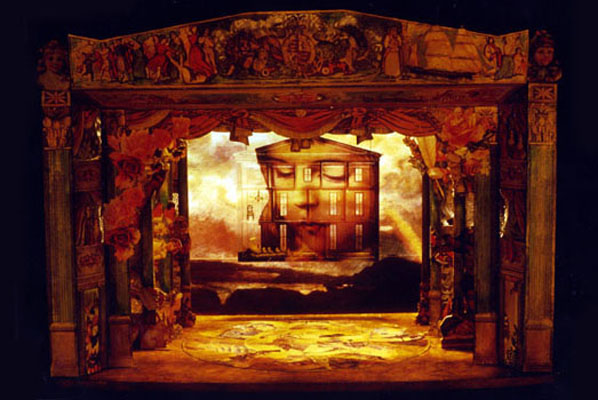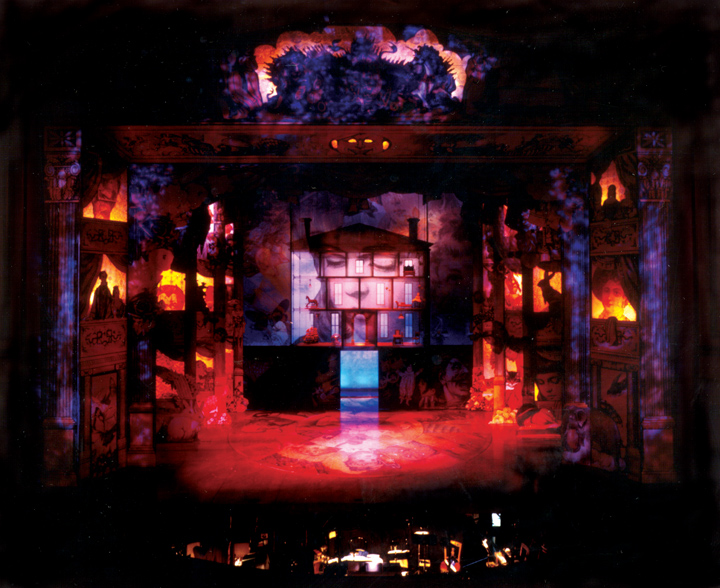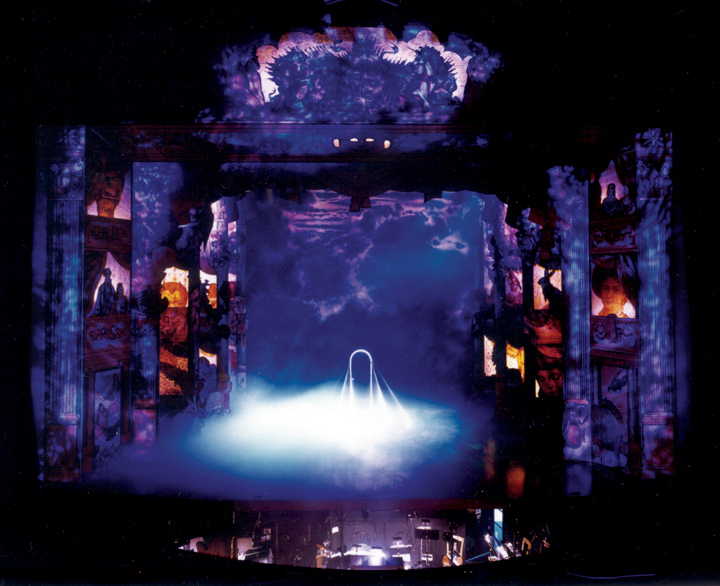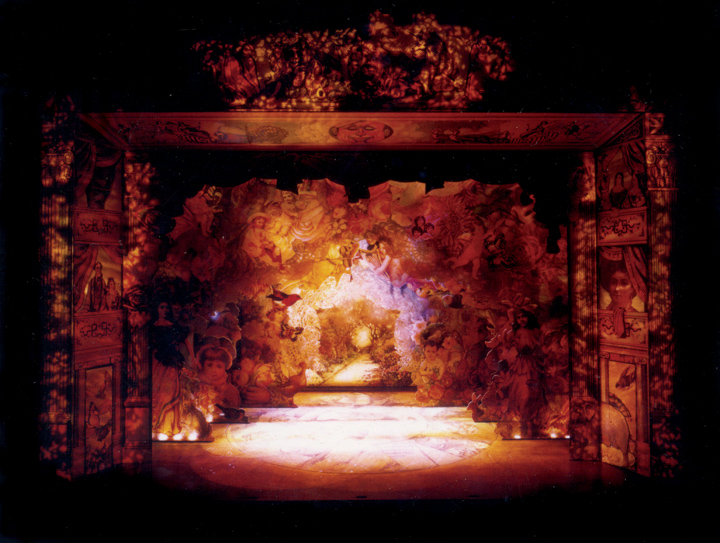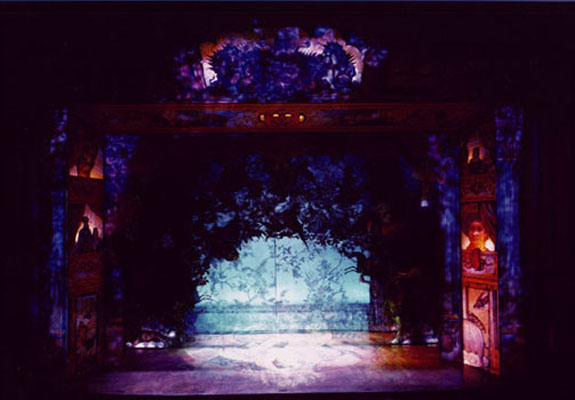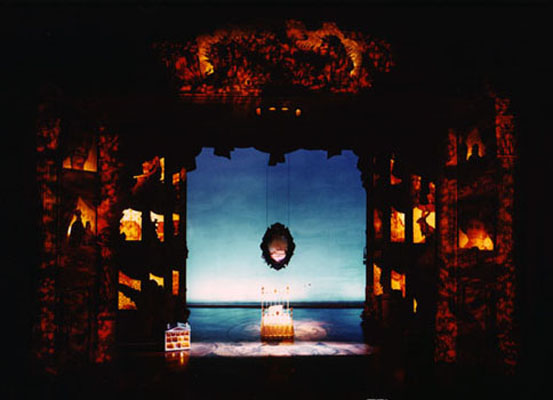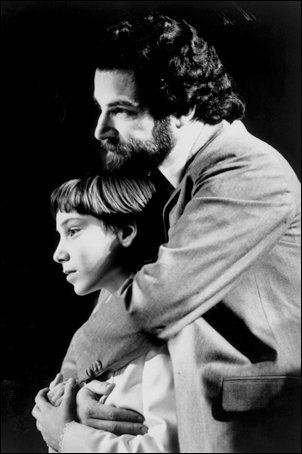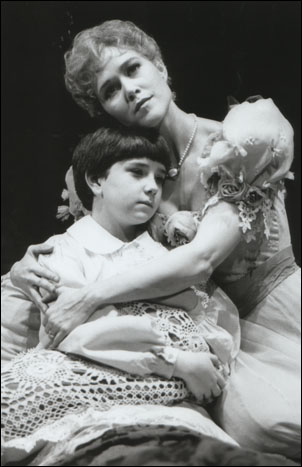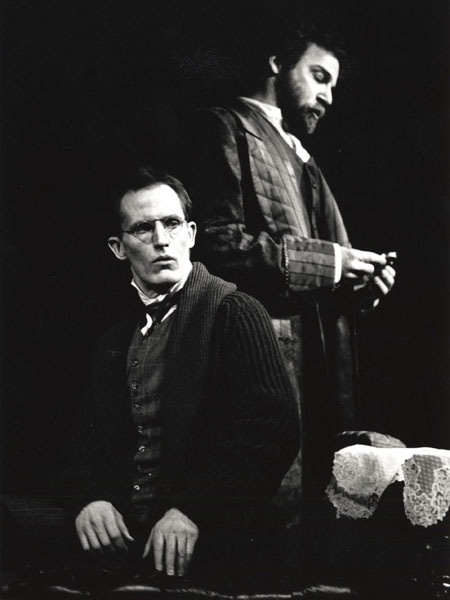Remembering The Secret Garden
Lucy Simon is an eclectic composer who adeptly infuses her music with the sounds and folk styles of other cultures. With her new musical Doctor Zhivago opening on Broadway last night. I began feeling affectionate about and nostalgic for her first foray into writing for the Broadway stage: The Secret Garden. The Secret Garden is richly textured musically and features expert allusions to the music of India and rural England. In fact, the musical went so far as to employ instruments outside of the norm for a Broadway pit, including a hammered dulcimer.
The Secret Garden opened at the St. James Theatre in 1991 and featured a glorious ensemble cast including Mandy Patinkin, Rebecca Luker, Robert Westenberg, John Cameron Mitchell, Alison Fraser, Tom Toner, and a Tony Award-winning turn from the young Daisy Eagan, who at the time was eleven-years-old. The musical was a unique experience from the outset, from the haunting work by this fine cast, to the Valentine decoupage-inspired scenery by Heidi Landesman (now Ettinger) that dreamily evoked mystical environs while keeping the action suggestively planted in a gloomy Yorkshire mansion. Above all, however, was Lucy Simon’s music married to Marsha Norman’s emotionally realized lyrics that helped the piece ignite for many audience members.
From the sweeping, ghostly opening montage that symbolically showed a cholera epidemic sweeping through a British colonial regiment in India through the passing of a red handkerchief, to the lone survivor Mary Lennox (Eagan) being shipped off to Uncle’s Yorkshire mansion, the score brims with both trepidation and magical subtext. By the time we reach the anxious and spooky “I Heard Someone Crying”, we are on the journey with little Mary, wandering through the expansive manse with a lantern in-hand, encountering the ghosts of a once-happy household that is now in permanent mourning.
Daisy Eagan as Mary Lennox
The songs keep coming as we learn that Mary’s Uncle (by marriage) Archibald, is still missing the ghost of the girl’s Aunt Lily, a specter that floats through the home and lovingly watches over Archie, as well as their son Colin who lies in bed all day. The boy is suffering from an illness manufactured by his Uncle Neville Craven, a doctor who plans to drive Archie away and wants rid of the child so he can have the estate for himself. Fortunately for Mary, there are several lively locals who take interest in the neglected girl. The maid Martha, her outdoorsy brother Dickon, and the crotchety gardener Ben Weatherstaff, all teach Mary about hard work, forgiveness, perspective, understanding, and how to plant flowers. Soon, Mary happens upon a key that opens a door into her Aunt Lily’s hidden garden. Inside, she decides to bring the flora back to its full beauty. As the garden comes to life, so does Mary, giving her the courage to awaken her dormant family and restore happiness to the household.
The Simon/Norman score is full of wonders. Perhaps the most arresting in the electrically-charged “Lily’s Eyes”, sung by Uncle Archie and Dr. Craven, each letting down their walls and bleeding sorrow as they are forced through Mary’s presence to remember the beautiful Lily and how each of them completely and obsessively loved her. It is one of the great duets of the musical theatre and, on the day I saw the show, “Lily’s Eyes” received a standing ovation. Patinkin (Archie) and Westenberg (Dr. Craven) melded in such complete harmony and exquisite pain, it was hard to tell where one of them stopped and the other began. It was a double dose of the sublime, wrapped into one completely perfect musical number. John Cameron Mitchell (Dickon), before donning the wigs of Hedwig, exuded an adorable charm and soaring voice to such songs as “Winter’s on the Wing” and “Wick”. Alison Fraser reignited hope and optimism better than any Little Orphan Annie ever has with the soaring “Hold On.” Has there ever been anything more ethereal than Rebecca Luker’s “Lily” beckoning with the enchanting “Come to My Garden.” These are just examples of a score that is effectively stuffed, song after song, with lush music and raw emotion. The Secret Garden is best enjoyed as an overall piece, hearing how the songs and musical motifs fit together. It is simultaneously complex while appearing effortless.
Critics were very mixed in their opinions about The Secret Garden, some finding it dark and dreary, while others saw this as a means to a beautiful end. At the time, the pieces was treated as an “also-ran”, with all of the hype surrounding the just-arriving-from-London Miss Saigon and the critic’s darling (and Tony winner for Best Musical) The Will Rogers Follies. What is interesting to note is, the two other big musicals of the season: The Secret Garden and Once on this Island, have both proven to have a durable shelf-life, and they both continue to receive regular productions in professional theatres, community theatres, and high schools. For many, The Secret Garden remains one of the most beloved scores of musical theatre. For me, it is certainly my favorite piece of the 1990s, and I will also affectionately remember being ensconced in my seat at the St. James, forgetting to breathe because something so glorious and deeply personal transported and changed me. If you were there, you know what I mean.


